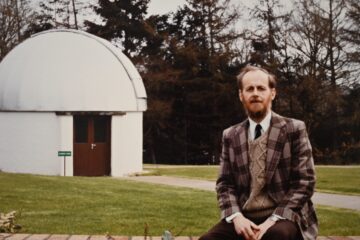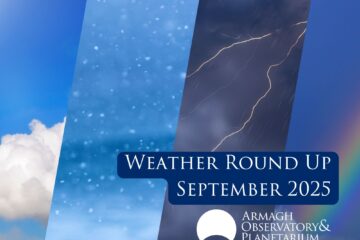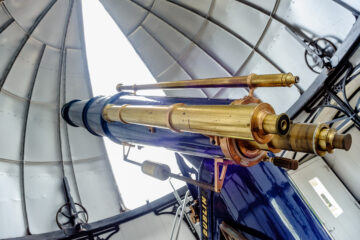Fun and safe experiments for children as schools close
We have had some of the biggest names in showbiz keeping us entertained with virtual concerts, now Armagh Observatory and Planetarium (AOP) are ensuring that learning in a fun way continues for children as schools across Northern Ireland close from today (Friday). Coldplay’s Chris Martin and Snow Patrol’s Gary Lightbody have both used social media this week to play music to their fans during this period of social distancing in response to the Coronavirus crisis. Now the Observatory and Planetarium have announced they will be using their Facebook page to post experiments which are fun and safe to try at home.

Armagh Observatory and Planetarium Education and Outreach Manager, Sinead Mackle said: “Our Science at Home series will give children the opportunity to try some experiments even though they are off school. The series will also include astronomy talks as well as interesting blog articles – from science in sci-fi movies to revealing what a vampire star is, we will have it covered. We are in unprecedented times and with our schools facing a prolonged period of closure it is important we all play a role in helping our children to continue to learn. We are very keen to engage with our social media followers so if there is a topic you would like us to cover or an experiment you would like to see us do, then we want to hear from you.”

The series kicked off on Thursday morning when the Observatory and Planetarium staff revealed the science behind an experiment which has recently gone viral on social media. Used by parents as a fun way to show their children the importance of washing their hands, the video shows someone dip their soapy finger into a bowl of water which has pepper grinds floating on it. The pepper immediately shoots to the outside of the bowl.
Explaining the science behind the experiment, AOP staff revealed that by adding soap it breaks down the surface tension of the water. When the surface tension is reduced, the water wants to spread out flat on the plate which carries the pepper away from the source of the soap.
The Science at Home series has been endorsed by a primary school teacher who says AOP ‘always make learning fun’.
Markethill Primary School teacher, Pamela McCool said: “This is a great idea from Armagh Observatory and Planetarium. At a time when schools are preparing for major disruption and a prolonged period of remote learning, this really is a great initiative. It’s a great use of social media and anything that encourages to children to continue learning in a fun way is to be encouraged. I would recommend AOP’s Science at Home series to all parents.”

Armagh Planetarium and Observatory is currently closed to the public as it undergoes major refurbishment work which will include the installation of a state-of-the-art digital theatre projector and a new sensory room.
To enjoy the Science at Home series, follow Armagh Observatory and Planetarium on Facebook. For a full programme of events once the centre has re-opened visit www.armagh.space



2 Comments
Harriet McGrory · March 26, 2020 at 16:22
Dear Armagh Planetarium
Re Request to confirm shooting star on Wednesday 25th March 2020
My daughter Harriet is 9yrs and has been very unwell this winter. Harriet has shown great interest in the brightest star in the sky. Last night, walking with the pugs, Harriet saw a shooting star close by the North star/Venus or Mars. This was at approx 20.10 – 20.12hrs. We live in Banbridge.
It would be very much appreciated if you could confirm if there was such an event in the night sky last night. Yours faithfully Melanie McGrory
Michael Burton · March 29, 2020 at 15:53
It’s entirely possible that Harriet saw a shooting star, but very hard to confirm. Shooting stars last about a second at most, and unless someone else was looking in the same part of the sky from nearby to Banbridge and reported it we wouldn’t know. However if the “star” last for a couple of minutes then it would most likely have been an artificial satellite, a spacecraft in low-earth orbit.